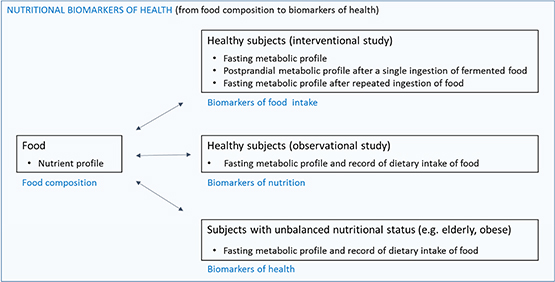A collaboration between Agroscope and Prof. Edith Feskens, Division of Human Nutrition of the Department of Agrotechnology and Food Sciences, Wageningen University, The Netherlands
The Cardioferment project proposes to make use of the NQplus cohort in order to validate, in a real-life setting, the biomarkers identified at Agroscope. The dietary patterns of the participants will be analyzed and grouped according to their consumption of fermented foods and fermented dairy products (low consumers → high consumers). Markers derived from other foods may also be investigated (see below). Furthermore, the anthropometric measures and cardiometabolic markers of these groups will be analyzed. The urine and serum metabolomes of a selected number of participants in low and high consumer groups will be measured by GC-MS and LC-MS in collaboration with the Research Division “Method Development and Analytics” (René Badertscher and Dr. Reto Portmann, respectively). In line with the FEB research concept, a range of associations will be investigated:
- Identification of short-term markers of the intake of fermented dairy products (selected from Agroscope studies) that also differentiate low and high consumers of fermented foods and fermented dairy products in the real-life setting of the NQplus cohort (“biomarkers of food intake”).
- Association of dietary patterns of fermented foods and fermented dairy products in the NQplus cohort with anthropomorphic and cardiometabolic measures (“biomarkers of health”).
- Association of biomarkers of the intake of fermented foods and fermented dairy products with anthropomorphic and cardiometabolic measures of the NQplus cohort (“nutritional biomarkers of health”).
The concept of “nutritional biomarkers of health” is illustrated in the Figure below.







